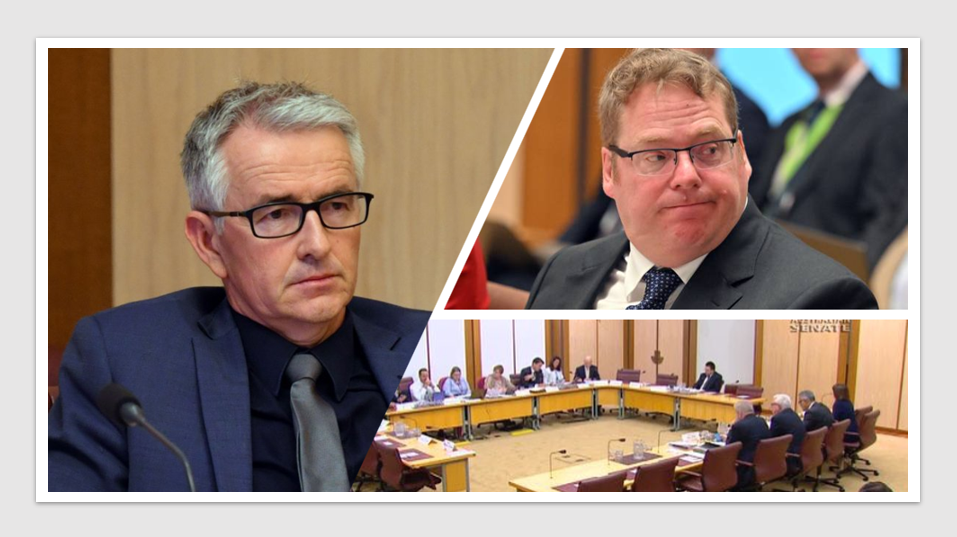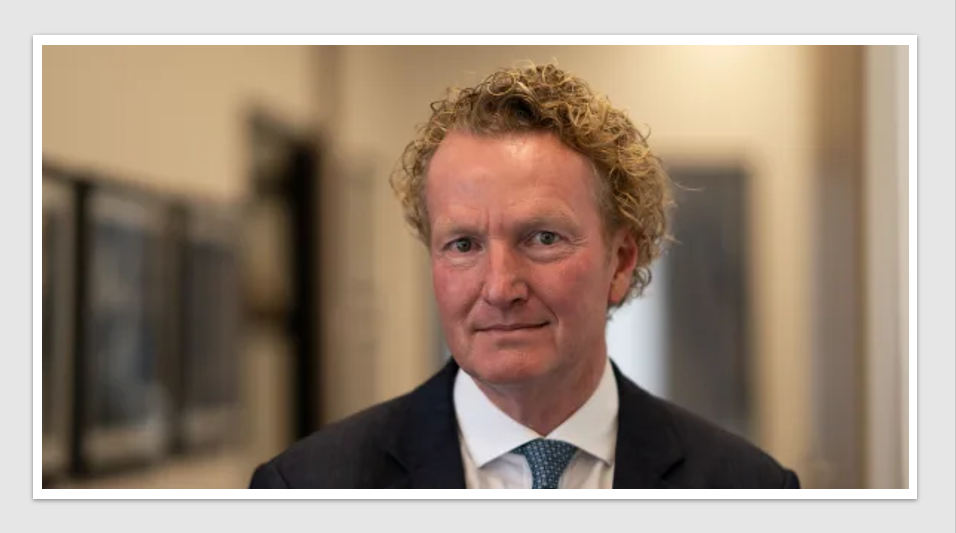Leadership & Management
Does a public servant in the Department of Health deserve $850,000 a year?

Is it ethically justifiable to defend exorbitant salaries for a select few when a considerable portion of Australians are grappling with financial hardships? Queensland Senator Gerard Rennick recently probed Blair Comley, Secretary of the Department of Health and Aged Care, about his base salary of $850,000, questioning its justification without “clinical medical qualifications”.
Australian households have experienced the largest fall in living standards of any advanced economy over the past year, according to the latest data from the OECD. The nation’s real household gross disposable income per capita declined by 5.1%. Soaring costs are compelling Australians to skip GP visits, delay purchasing vital medicines and limit hospital care, according to he latest statistics from the Australian Bureau of Statistics (ABS). The most vulnerable among us are facing critical decisions regarding basic necessities like food and heating.
The justification for these leaders’ astronomical earnings remains subjective, contingent on numerous factors. However, the disproportionately high compensation becomes contentious when issues of trust and truth arise. Dissatisfaction intensifies when there’s a perceived lack of adequate return on investment, whether in individual performance or the effectiveness of the organisations they oversee. This frustration is amplified when these individuals fail to take appropriate action.
Instances such as the health department’s breach of grant legislation under the former Coalition government have further eroded public trust, intensifying scrutiny and scepticism regarding the allocation of such high salaries. The federal MP Monique Ryan labelled the former government’s actions “potentially corrupt” and demanded major changes to Commonwealth grants in light of the audit office’s blistering report on administration of the Community Health and Hospitals Program (CHHP).
According to Dr Kirstin Ferguson AM, best-selling author of Head & Heart: The Art of Modern Leadership, there are both public and private sector leaders whose high salaries may be justified. In the corporate ecosystem, these hefty compensations are intrinsically linked to the expectation of exceptional performance, scrutinised closely by investors aiming to ascertain if executive pay contributes to shareholder value. There are detailed justifications demanded by investors regarding CEO remuneration. Boards constantly evaluate market standards to validate these high salaries.
Another recent example is former Qantas CEO Alan Joyce’s remuneration, totalling $150 million for his 15-year tenure, which sparked major controversy. Despite calls for his appearance before a senate inquiry, it was blocked by Labor and the Greens. Joyce is in a long line of executives who left their corporations in a reputational mess, quite apart from the profit they generated.
The work of Quentin Beresford, Adjunct Professor at Sunshine Coast University and author of Rogue Corporations: Inside Australia’s biggest business scandals, reveals a link between excessive remuneration and the onset of corporate greed marked by excessive risk-taking and “risk blindness” for short-term profit.
“Australia has been littered with corporate scandals for 40 years. High-profile CEOs walking the plank have become a regular feature of public life, most with their bonuses intact,” he says.
Dr Ferguson explains that perhaps there are leaders deserving of salaries deemed otherworldly by many, but with two crucial caveats. Firstly, high remuneration should only follow if the individual genuinely adds substantial value, a metric often challenging to quantify accurately. Secondly, those at the pinnacle of earning hierarchies must be held to the highest standards of accountability commensurate with their responsibilities.
Finance Minister Katy Gallagher has recently cautioned government-owned business boards to exercise restraint regarding pay and bonuses, following revelations that at least 32 top public servants earned over $1 million last year.
While the private sector faces investor feedback, the public sector operates under voter scrutiny. However, government officials continue to receive taxpayer-funded packages beyond their current positions, regardless of whether their performance has been in the best interests of the communities they serve, highlighting the crucial need for accountability and transparency.
Balancing the need to attract and retain exceptional leaders with commensurate compensation for their weighty responsibilities is essential. However, ensuring accountability for their actions is equally imperative. Until senior leaders are perceived to be held accountable like everyone else, resentment toward inflated salaries for high-stakes roles will persist.
 In reimagining healthcare across the entire patient journey, Health Industry HubTM is the only one-stop-hub bringing the diversity of Pharma, MedTech, Diagnostics & Biotech sectors together to inspire meaningful change.
In reimagining healthcare across the entire patient journey, Health Industry HubTM is the only one-stop-hub bringing the diversity of Pharma, MedTech, Diagnostics & Biotech sectors together to inspire meaningful change.
The content on Health Industry Hub is copyright protected and should only be accessed under individual user licenses. To subscribe, please click here and visit T&Cs here.
News & Trends - Pharmaceuticals

Healthcare affordability and accessibility top priority for consumers ahead of Federal Budget
Pharma News: With the Federal Budget set to be delivered in just one week, there is a critical need for […]
MoreNews & Trends - Pharmaceuticals

UCB secures registration of rheumatology drug
Pharma News: UCB Australia has secured Therapeutic Goods Administration (TGA) approval of its therapy for psoriatic arthritis (PsA), non-radiographic axial […]
MoreDigital & Innovation

Targeted funding of digital health technologies key to unlocking $5 billion in savings: New report
Digital & Innovation: Integrating digital technology into healthcare more effectively could alleviate pressures on our healthcare system and lead to […]
MoreNews & Trends - MedTech & Diagnostics

Surgeons welcome ‘significant win’ for patients, amidst clash with health insurers
MedTech & Diagnostics News: The Royal Australasian College of Surgeons (RACS) is heralding a significant triumph for Australian patients following […]
More